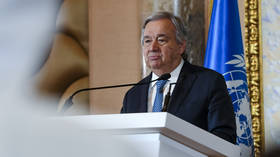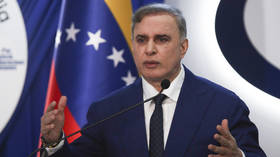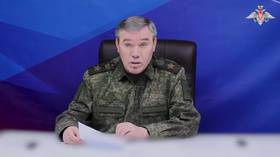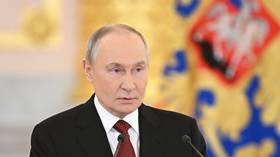UN condemns cluster munitions

A spokesman for the UN secretary-general called out the use of cluster munitions on Friday, as the US prepared to announce supplying artillery shells of that type to Ukraine.
Secretary-General Antonio Guterres “supports the Convention on Cluster Munitions, which, as you know, was adopted 15 years ago. And he wants countries to abide by the terms of that convention,” his spokesman Farhan Haq told reporters at the UN headquarters in New York.
“And so as a result, of course, he does not want there to be continued use of cluster munitions on the battlefield,” Haq concluded.
The White House has confirmed that cluster munitions will be included in the latest batch of military supplies for Ukraine. Kiev has hailed the delivery as having an “extraordinary psycho-emotional impact” on Russian troops, which the Ukrainian army has not been able to push back in a month of heavy fighting.
One of the reasons the Pentagon cited for providing the dual-purpose improved conventional munitions (DPICM) was that the US was running short of conventional 155mm artillery rounds to send to Ukraine.
Human Rights Watch and other groups have objected to the plan, noting that cluster bombs have a high rate of unexploded ordnance that continues to kill and maim civilians for years afterward.
The Convention on Cluster Munitions came into effect in August 2010, with signatories pledging to “never under any circumstances” use, develop, produce, or transfer the banned munitions, or assist, encourage and induce anyone else to do so. It has been ratified by 111 states so far – including most NATO members – though not by the US, Ukraine, or Russia.












